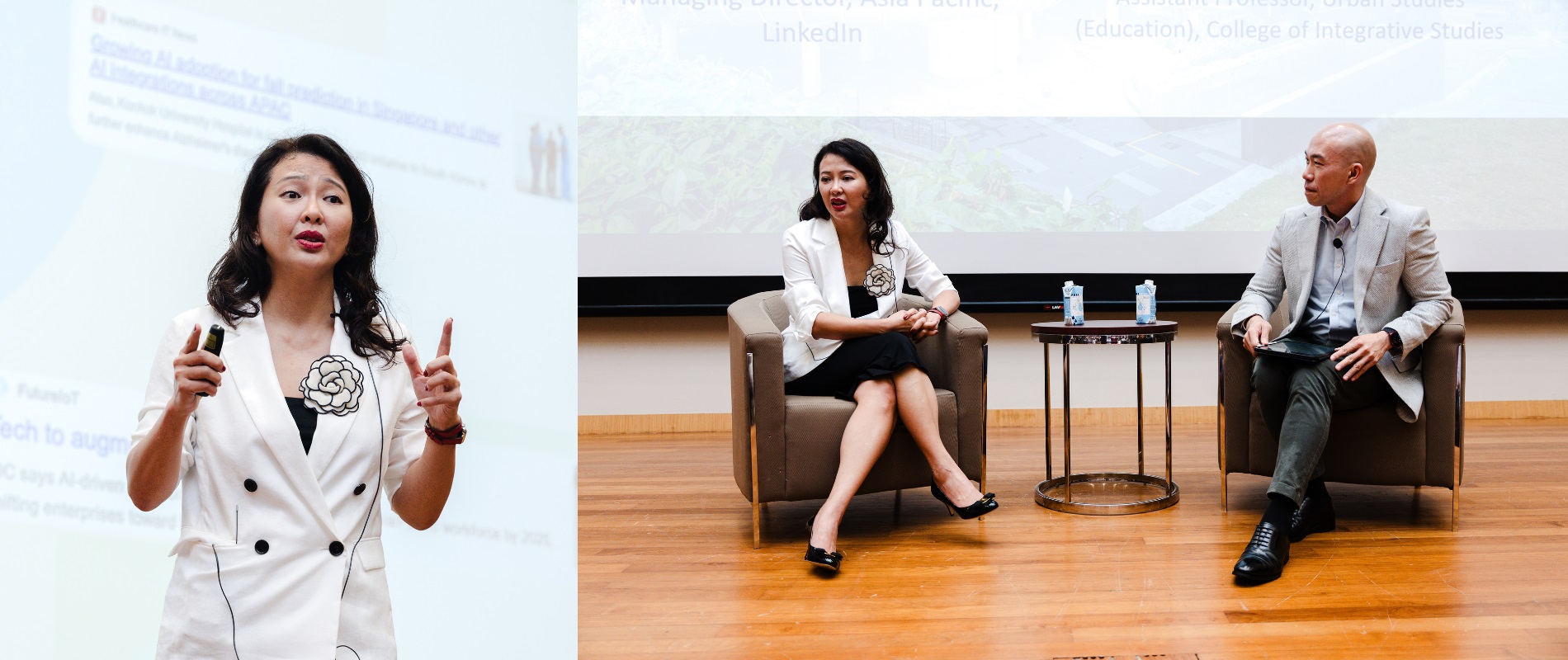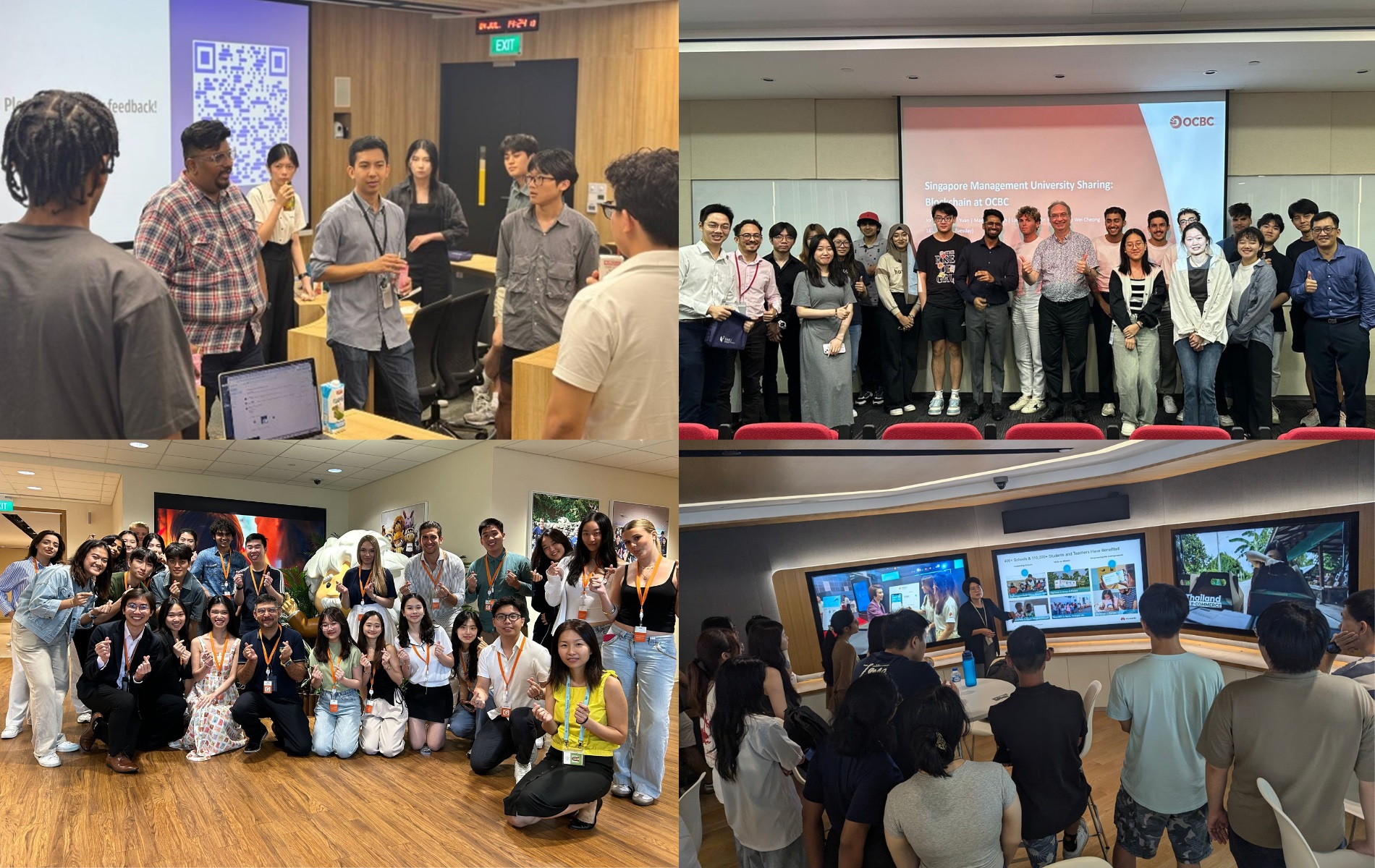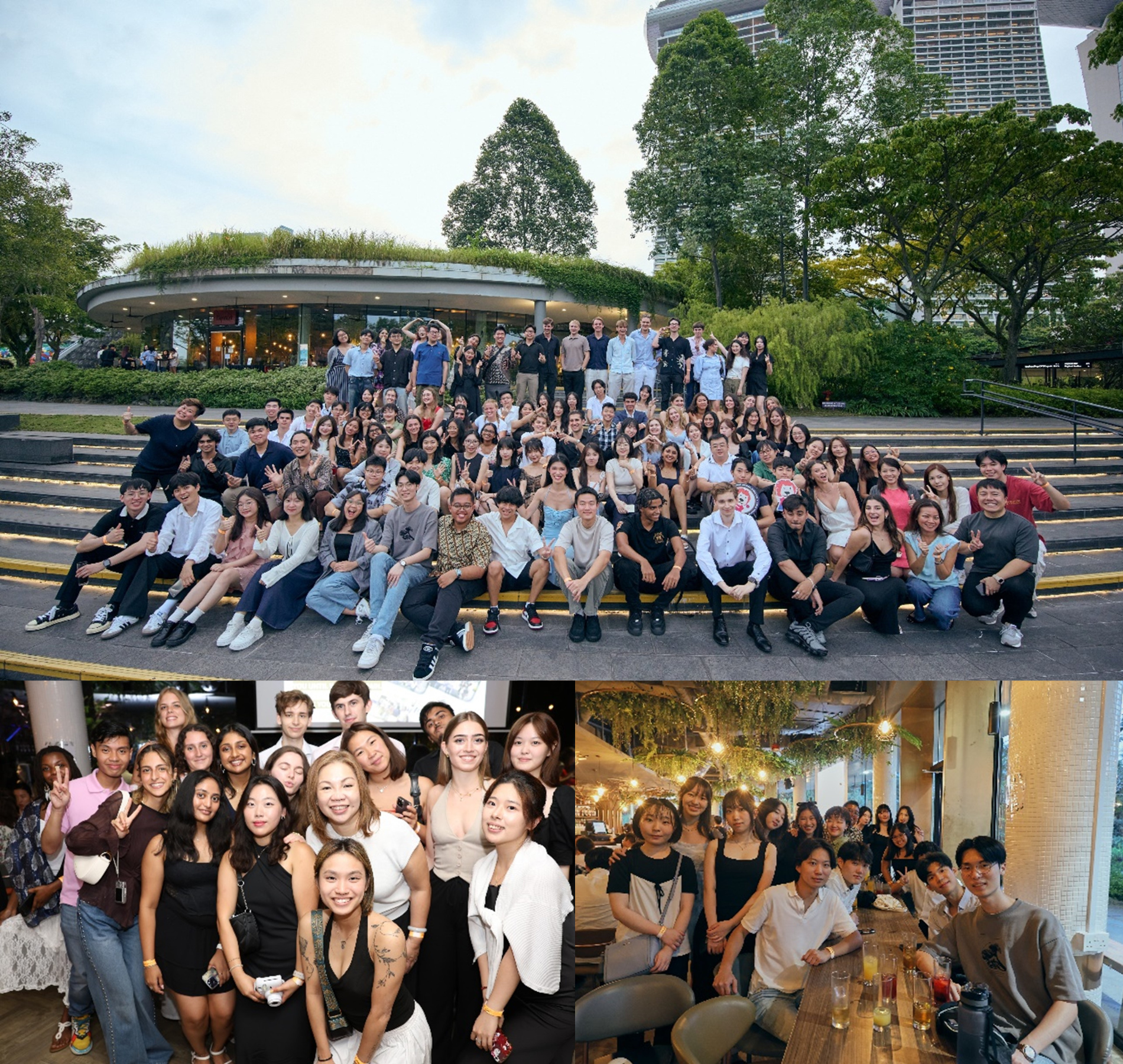
In a first, Singapore Management University (SMU) launched the 9th edition of its annual Global Summer Programme (GSP) with the introduction of a Digital Intelligence track. Taking place on 24 June 2024 at the Mochtar Riady Auditorium on campus, the launch event was attended by more than 250 programme participants from 35 nationalities around the world.
Comprising seven diverse courses, the new Digital Intelligence track equips students with essential skills and knowledge ranging from artificial intelligence to business data management. Digital Intelligence is aligned with SMU’s strategic pillar of Digital Transformation, a key element in working towards realising the University’s Vision 2025. Digital Intelligence complements the programme’s existing Asian Insights and Sustainable Futures tracks.
Speaking at the launch event, Guest of Honour Ms. Feon Ang, Managing Director, Asia Pacific, LinkedIn, emphasised the need for students to adapt to the rapid evolution of artificial intelligence within the context of an ever-evolving digital landscape. Ms Ang also shared insights into the complexities of technological advancements faced by both employers and jobseekers.
“We’ve arrived at a pivotal moment in the future world of work, where skills needed for the same job will change by 72% in Singapore. Today, we need to look at jobs as a set of tasks, some of which can be made more efficient with AI. In fact, our data shows that companies are placing emphasis on candidates who possess not only AI expertise but also soft skills and a learning capacity. My advice to fresh graduates is to adopt a growth and skills-first mindset, picking up both hard and soft skills for success in an era of work shaped by AI,” advised Ms Ang.

Leveraging on SMU’s strengths in digital transformation and the University’s strong linkages with industry across the ecosystem, the GSP’s Digital Intelligence track offered students a holistic experience that paired classroom learning with global networking. This was evidenced over the span of the four-week programme, where participants had the opportunity to step into the offices of technology behemoths such as Huawei and Salesforce, as well as OCBC Bank, a home-grown blue chip organisation that had successfully embraced technology, to hear first-hand from industry practitioners. Such corporate visits allowed GSP participants to gain insights into topics such as blockchain applications, Internet of Things and customer analytics that were generously shared by employees and management.
Concurrently, GSP participants could engage with members of industry on real-world business issues during guest lectures. During one such lecture, speakers from Capital A (AirAsia Group) explained how they had leveraged technology to tackle business issues with innovative design and management of their databases.
“I highly recommend the GSP. Through it, I had the opportunity to study in one of the most important global business hubs and broaden my global mindset,” commented Kin Ho Cheung from Vrije Universiteit Amsterdam.

Through onsite visits to a wide array of local companies, GSP participants gained an edge in enhancing their socioeconomic and cultural understanding of Singapore and Asia. From the visits hosted by JTC Corporation, Monetary Authority of Singapore (MAS) and the PIXEL Innovation Hub by Infocomm Media Development Authority (IMDA), they gleaned the value of leveraging technology for business success, as well as to use technology potentially as a force for good. Participants also visited Old Town White Coffee and Ji Xiang Ang Ku Kueh, which gave real-world exposure to the local food industry, and boosted their appreciation of cultural diversity during organised tours to heritage sites in Singapore’s Chinatown and Kampong Glam.
![]()
The GSP, since its inception in 2015, has endured in its goal of providing an enriching platform for participants to learn, network and forge friendships. In this vein, workshops ranging from Drone Flying, Archery 101 and 3D Printing were organised for students to explore new interests while striking up conversations with fellow participants. A particularly memorable Tchoukball session during this year’s programme was credited with bringing out a friendly and competitive team spirit that bonded participants.
“Other than academics, it was wonderful to participate in the many amazing activities on offer! Through them, I made friends with students from around the world and developed a newfound cultural appreciation of Singapore,” said Wimansa Selini Samaranayake, a GSP participant from the University of Melbourne.

The final farewell party saw students gathering together at the iconic Gardens by the Bay and sharing their GSP experiences with one another. “SMU GSP was one of the greatest experiences of my life. I had the best time getting to know others and learning from experienced professors,” said Natalie Ye from the Queensland University of Technology.
Commenting on the successful conclusion of GSP 2024, Mr. Rick Tay, Head of the SMU Centre for Global Education and Opportunities (GEO), said, “We are happy that students were immersed in the latest trends and innovations and are empowered to create positive impact in their communities. They are now part of a global network of changemakers, and we have no doubt that they will achieve great things together.”
The SMU Global Summer Programme is managed by the Centre for Global Education and Opportunities (GEO), a member of the University’s Academic Services and Operations group. Registration for GSP 2025 will open in mid-January 2025.